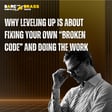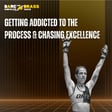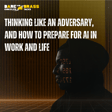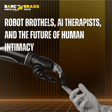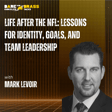
Do It Scared! The Journey from Pentesting Novice to Conference Speaker with Michelle Eggers
Mainframe pentester Michelle Eggers joins us to share her incredible journey into cybersecurity, and specifically her niche in mainframe security.
George K and George A talk to Michelle about:
💪 Her hustle and flow switching careers into pentesting, including 40+ interviews and an intense training cohort
🍀 How she carved out a rare specialty in mainframe security through networking and seizing opportunities
😱"Do it scared" - her advice for speaking at conferences and pushing through imposter syndrome
💳 Why mainframe security matters (hint: it touches billions of financial transactions daily)
If you're trying to break into security, switch careers, or level up your technical skills - you need to hear Michelle's practical wisdom and refreshingly honest perspective on the journey.
————
👊⚡️BECOME A SHOW SUPPORTER
https://ko-fi.com/bareknucklesbrasstacks
For as little as $1 a month, you can support the show and get exclusive member benefits, or send a one-time gift!
Your contribution covers our hosting fees, helps us make cool events and swag, and it lets us know that what we're doing is of value to you.
We appreciate you!




